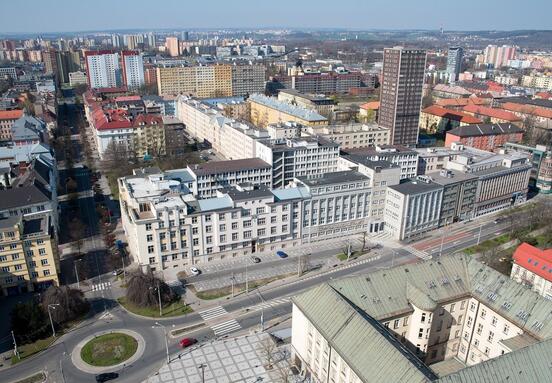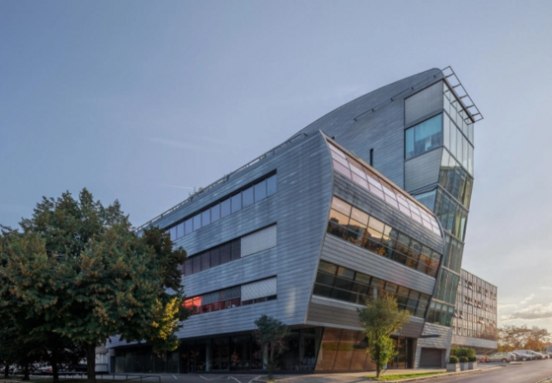The smart use of technology in office buildings, together with market indicators such as the supply of modern offices in relation to the number of inhabitants and low vacancy rates, continue to have a positive effect on the current state of the office real estate sector in Central and Eastern Europe (CEE). However, the lingering effects of the pandemic, high inflation, increased energy costs and geopolitical factors have strongly affected the willingness of investors, which was reflected in a 65% year-on-year decline in investment in the office sector in the CEE-6 countries. Such conclusions were reached by the Colliers company in its study entitled Technology as a remedy for the aging supply of offices in the CEE region in 2023/2024.
Investments in office space in Central and Eastern Europe in the first half of 2023
The total volume of investment in office space in the CEE-6 countries reached about 2 billion euros in the first half of 2023, which represents a year-on-year decrease of approximately 65%. These results are in line with trends in Europe as a whole and in the world. Given the prevailing market conditions, credit costs and the ongoing real estate revaluation, forecasting activity in the investment market this year was challenging. The Colliers study estimates that with the current trajectory, the amount of these investments in the given region could reach around 4.0 billion euros. This is significantly less than the ten-year regional average (EUR 11.0 billion) and one of the lowest ever recorded values since 2012.
"The current role and size of corporate offices have fundamentally changed after the pandemic. The increase in remote work and geopolitical factors mean that a return to the state before 2020 is not possible. While these changes put landlords in developed markets in a difficult position, the CEE region is at a completely different point in its development cycle. Per capita, even the most developed cities of the CEE region, such as Warsaw, Budapest, Prague and Bucharest, have 2-3 times less office space than some Western European capitals, and in addition, it is precisely in this area of Europe that much of the economic growth has taken place in the last decade. ” explains Silviu Pop, Research Director for Central and Eastern Europe and Romania at Colliers.
Refinancing problem
After a decade of very cheap money and an unprecedented boom in the real estate sector, interest rates peaked at the end of September 2023, at a level not seen in the last two decades. Higher interest rates naturally make borrowing more expensive, and as a result, sellers may struggle to get the expected price when selling.
As a result, loan refinancing is very essential to the current owners' business models. Instead of the "capital wall" that has been talked about in past years, we now face a potential "refinancing wall", and it is not a small one according to estimates.
ESG Implications for Pricing
Further consequences for price formation on the real estate market can also be brought by growing requirements for compliance with European ESG regulations. Although Central and Eastern Europe has a relatively young and largely environmentally certified office stock, it is expected that in order to avoid problems with market implementation in the future, real estate will not avoid additional capital expenditures to enable them to meet the escalating requirements of ESG standards. Demands for ESG standards will also increase from tenants, who will also have to report their carbon footprint.
Technology in real estate services
Technology can play a significant role in this regard. “Technology has the potential to significantly impact aging office buildings in markets such as CEE. Thanks to the rapid development of smart building technologies, older properties can be revitalized and brought up to modern standards without the need for extensive renovations. Modern technology can also improve the user experience in these aging buildings. Office space tenants can benefit from advanced access control systems, personalized indoor environment management and intelligent lighting. As a result, the workspace will become more comfortable for users and will be more adapted to their individual needs," concludes Dominika Jędrak, Director of Research and Advisory Services at Colliers.
You can download the entire study in English here.







